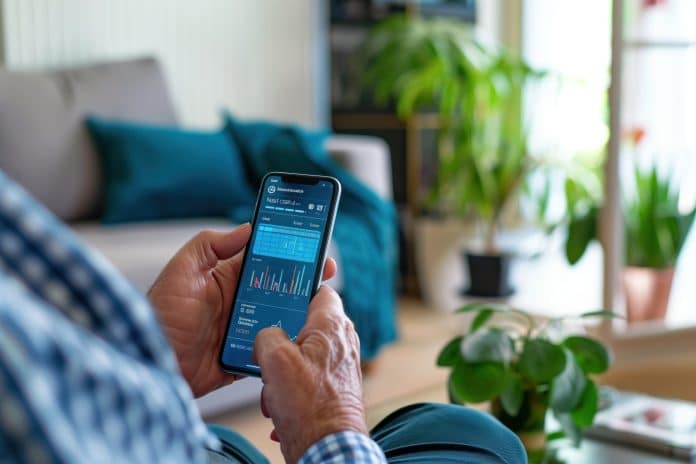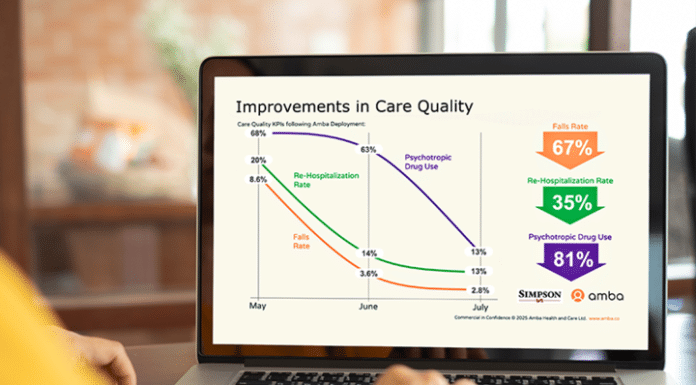Aging often comes with challenges, but technology is changing how you navigate this stage of life. From smart devices to cutting-edge medical tools, innovation is helping seniors lead healthier and more independent lives.
Here’s how technology is improving senior health and wellbeing.
Smart Home Devices
Smart home technology makes daily life more manageable and secure. Devices like voice-controlled assistants, smart thermostats, and automated lighting ensure your home adapts to your needs. Voice assistants, such as Amazon Alexa or Google Assistant, allow you to set reminders, control devices, or call loved ones without lifting a finger.
Home monitoring systems add another layer of safety. Sensors can alert caregivers if you fall or leave a door unlocked. These tools promote independence while giving your family peace of mind.
Wearable Health Monitors
Wearable health monitors are revolutionizing how you manage your health. Fitness trackers or smartwatches with health monitoring features provide real-time data on heart rate, activity levels, and sleep patterns. Some even detect irregular heartbeats or measure blood oxygen levels.
These devices empower you to stay proactive about your health. With easy-to-read metrics and mobile app integrations, you can share data with your doctor, ensuring timely interventions.
Integrated Care Platforms
Technology is transforming senior living care. Integrated care platforms simplify complex processes, from managing health records to coordinating staff schedules. These systems ensure timely care, track medications, and monitor overall wellness.
Senior living software is a fundamental component of these platforms. It centralizes data and provides tools for efficient management. Many platforms include family portals, giving loved ones access to updates and communication tools. By leveraging data analytics, senior living software helps predict potential health issues, enabling early intervention. Whether in independent living or assisted care, these technologies create safer, more responsive communities.
Telehealth Services
Telehealth brings healthcare to your doorstep. Virtual consultations let you connect with doctors, therapists, and specialists from the comfort of your home. This is particularly beneficial if mobility is an issue or you live in a rural area.
Beyond convenience, telehealth offers tools like remote patient monitoring. Blood pressure cuffs or glucose monitors can send real-time data to your doctor, reducing the need for frequent visits. It’s healthcare that meets you where you are.
Cognitive Health Tools
Maintaining mental sharpness is crucial as you age. Digital tools designed for cognitive health, such as brain-training apps, can help. Games that challenge memory, problem-solving, and focus are both entertaining and beneficial.
Virtual reality (VR) is another game-changer. VR experiences let you explore new places, revisit old memories, or engage in therapy sessions. These activities stimulate your mind and combat feelings of isolation.
Assistive Technologies
Assistive technology can help you stay active and engaged despite physical challenges. Devices like stairlifts, motorized scooters, and adaptive utensils make everyday tasks easier. Advanced hearing aids and speech-to-text software improve communication, ensuring you stay connected.
Robotic exoskeletons are pushing boundaries even further. These wearable devices assist with mobility and rehabilitation, helping you regain strength and independence after injuries or illnesses.
AI-Powered Companions
Loneliness can impact your mental and physical health. AI-powered robots or virtual companions are stepping in to fill this gap. Devices like ElliQ offer conversation, reminders, and even companionship. They’re designed to engage with you, providing emotional support and stimulating interaction.
These tools don’t replace human connections but can supplement them, especially when loved ones are far away.
Medication Management
Keeping track of multiple medications can be overwhelming. Smart pill dispensers take the guesswork out of it. These devices alert you when it’s time to take your medicine and can even notify caregivers if you miss a dose.
Some apps help you track your medication schedule, refill prescriptions, and set up reminders. It’s an easy way to ensure you stay consistent with your treatments.
Health Apps
Health apps offer tailored support for your wellbeing. From fitness to diet tracking, these apps cater to your specific needs. You can monitor your calorie intake, follow exercise routines, or manage chronic conditions like diabetes.
Apps like Calm also address mental health by offering guided meditations, breathing exercises, and stress management techniques. They’re easy to use and adapt to your lifestyle.
The Future of Senior Care Technology
Innovation continues to evolve. Advances in artificial intelligence, robotics, and biotechnology are paving the way for smarter and more personalized elderly care. Predictive analytics might soon help detect illnesses before symptoms appear, ensuring early treatment.
Emerging technologies like smart implants and advanced prosthetics are redefining possibilities for mobility and overall health. The future looks bright, with technology ready to support you at every step.
Final Insights
Technology isn’t just about gadgets—it’s about enhancing your quality of life. By adopting these innovations, you can stay healthier, safer, and more connected. Whether it’s a wearable device or a simple app, there’s something out there to make your golden years truly shine.
Start small. Explore the tools that fit your needs and preferences. With technology on your side, you’re equipped to live your best life, welcoming each new advancement.

























